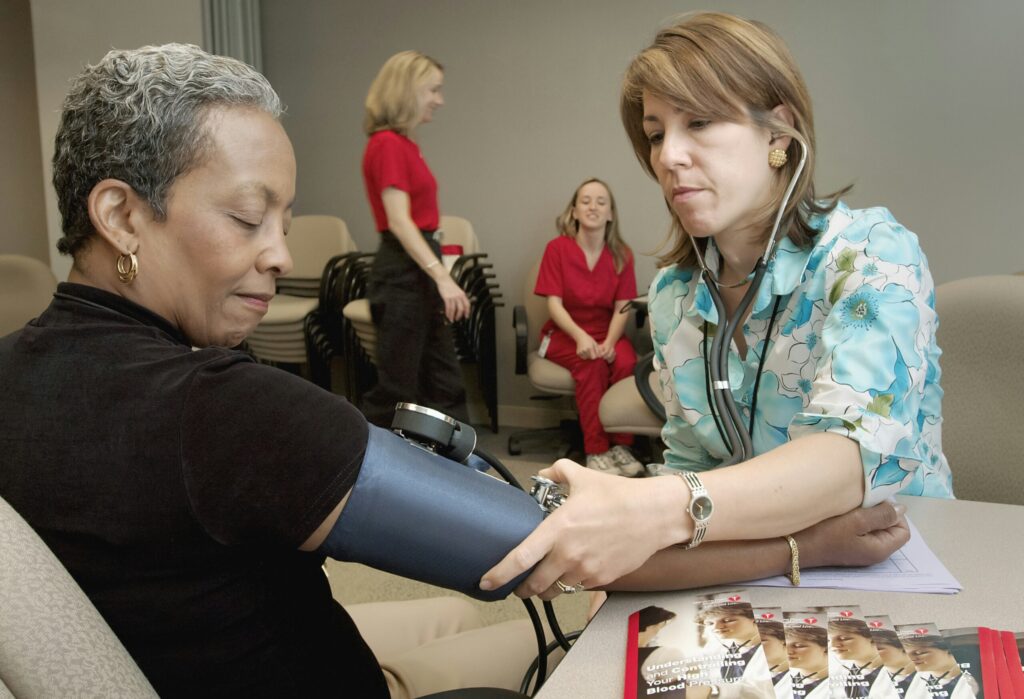While we haven’t discovered exactly why women develop fibroids, there are many factors that contribute to women's risk for these benign tumors. And now, a new study has revealed that treating high blood pressure (hypertension) lowers the future risk for developing fibroids. Keep reading to learn more.

A new study published in JAMA Network Open highlights the connection between cardiovascular health and the risk of developing uterine fibroids. In fact, researchers discovered that you could reduce fibroid risk by treating existing hypertension via medication.
How did the study authors reach this conclusion? They examined 18 years of health records for more than 2500 women, ranging in age between 42 and 52. (All the women were enrolled in the Study of Women’s Health Across the Nation.) Most importantly, researchers compared health outcomes for women with and without diagnoses of high blood pressure.
Now, of all the women in the study, 20% (526 women) received a fibroid diagnosis with at least one tumor detected. However, the development rates were unequal: women with untreated high blood pressure developed fibroids at a rate that was 19% higher than other women. However, they could dramatically lower that risk (by up to 37%) simply by treating hypertension. And, if their chosen treatment involved ACE inhibitor medications, their risk for fibroids fell by 48%.
For now, there's no proof that taking blood pressure medication will prevent fibroids from developing. And don't forget: taking ACE inhibitors can lead to side effects such as a decreased heart rate. As such, we would not recommend taking ACE inhibitors to reduce the future risk for fibroids.
Instead, you can try to reduce your fibroid risk by focusing on your lifestyle. If you reach and maintain a healthy weight through diet and exercise, you may reduce your tumor risk. And even if you've already got fibroids, these lifestyle efforts can help reduce the burden of fibroid symptoms.
However, we must remember that family history and race also play a role in your fibroid risk: in fact, Black women develop these tumors at a rate that's three times higher than Caucasian women. As such, preventative lifestyle measures may not be entirely effective. Thankfully, that doesn't mean you have to live through the pain of fibroids: instead, you can explore non-surgical treatment options!
At Dallas Fibroid Center, our interventional radiologists perform Uterine Embolization (UFE) to shrink uterine tumors without surgery. The procedure involves reducing blood flow to your uterine artery; it's effective because it starves the fibroids, allowing them to shrink and reduce your symptom burden. Plus, it provides a minimally invasive treatment that allows you to avoid myomectomy or hysterectomy surgery, along with overnight hospital stays and general anesthesia. As such, recovery after UFE is shorter and less intense than the post-procedural recovery for women who choose surgical treatment.
Are you a candidate for UFE in Dallas? We can help you determine your best treatment option with a consultation in the office.

Our Locations
Monday - Friday
8am - 5pm
Dallas
3920 W Wheatland Rd,
Suite 108,
Dallas, TX 75237
Plano
5425 W. Spring Creek Parkway,
Suite 100
Plano, TX 75024
Scheduling
Please contact our dedicated specialists to schedule a consultation today.
2025 Dallas Fibroid Center. All rights reserved. Website Design by Healthcare Success